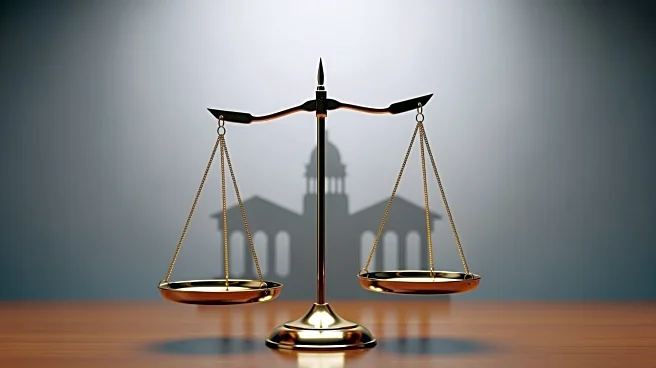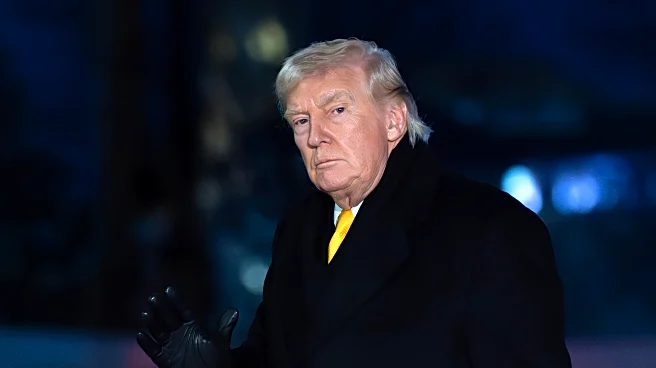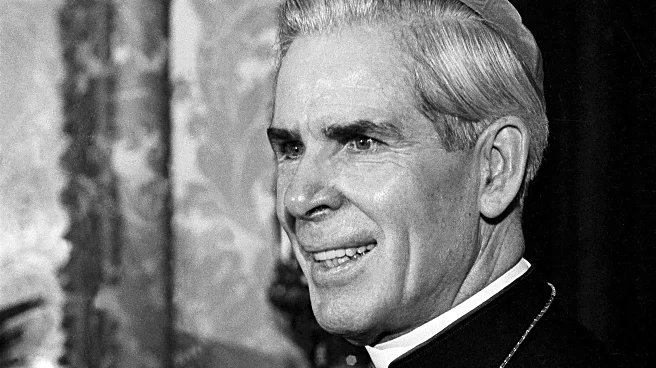What's Happening?
The Supreme Court is set to hear a significant case regarding the legality of tariffs imposed during President Trump's administration. These tariffs, central to Trump's economic strategy, have been a point of contention, with arguments focusing on whether
the president overstepped his authority under a 1970s law granting economic powers during national emergencies. The case questions the extent of presidential power in imposing tariffs, which have been used by Trump as a tool for trade negotiations and addressing national security concerns. The tariffs have generated substantial revenue for the federal government but have also been criticized for increasing costs for U.S. consumers and businesses.
Why It's Important?
The outcome of this case could have far-reaching implications for U.S. trade policy and the balance of power between the executive and legislative branches. If the Supreme Court rules against the tariffs, it could lead to a reduction in import taxes, potentially lowering consumer prices and affecting domestic manufacturing. However, the decision could also reaffirm or limit the president's ability to use tariffs as a negotiating tool, impacting future trade agreements and economic strategies. Businesses and consumers stand to gain from reduced costs if tariffs are deemed unconstitutional, while the federal government could lose a significant revenue source.
What's Next?
Should the Supreme Court rule against the tariffs, the average tax on imports could decrease significantly. However, other legal avenues may allow the president to reimpose similar tariffs, albeit with more restrictions. The decision could also open the door for businesses to seek refunds on tariffs already paid, leading to potential financial and administrative challenges. The ruling is expected to clarify the scope of presidential powers in trade matters, influencing future policy decisions and possibly prompting legislative action to redefine these powers.
Beyond the Headlines
The case highlights the ongoing debate over the separation of powers in the U.S. government, particularly concerning economic policy. It raises questions about the role of the executive branch in shaping trade policy and the potential need for clearer legislative guidelines. The decision could also influence international perceptions of U.S. trade practices and affect diplomatic relations, as tariffs have been a contentious issue in global trade discussions.

















